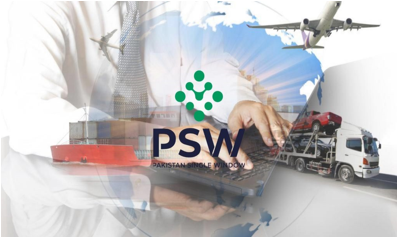INP-WealthPk
Ayesha Saba
Pakistan Single Window (PSW) has been recognised as a pivotal reform in the country's trade facilitation framework.

By integrating multiple government agencies into a unified digital platform, PSW helps enhance the efficiency of import, export, and transit trade processes, minimise paperwork, and expedite cargo clearance at ports and border crossings. During an interview with WealthPK, Dr Muhammad Sohail, a trade policy analyst at Trade Development Authority of Pakistan, noted that PSW was a critical step toward reducing the bureaucratic red tape that has long plagued traders.
He highlighted that previously, businesses had to navigate multiple agencies, each with its own set of regulations, procedures, and documentation requirements. “This fragmentation not only caused significant delays but also increased trade costs, ultimately affecting Pakistan’s export competitiveness.” “With PSW, a single digital interface now allows traders to submit their documents once, which are then processed by all relevant authorities in real time.
These technological advancements not only minimise errors but also significantly expedite procedures, marking a departure from the cumbersome manual and paper-based processes,” Sohail opined. However, he cautioned that if some agencies continued to operate in silos, the full efficiency gains of the system would not be realised. The World Bank’s Ease of Doing Business Index consistently ranks trade facilitation as a key determinant of a country's economic performance. Pakistan’s ranking has been affected by slow customs clearance, excessive documentation, and inefficiencies at ports.
According to Sohail, PSW has the potential to address these issues, but only if it is truly implemented. He pointed out that while the Federal Board of Revenue and Pakistan Customs have been proactive in integrating PSW, other agencies, including regulatory bodies handling health, environmental, and security clearances, have been slower to transition. “This partial adoption means that traders still have to follow some offline procedures, reducing the overall impact of the system.”
Under the PSW’s business process reforms, 96 paper-based documents have been replaced with electronic verifications, streamlining processes and enhancing efficiency. Trade-related documents have been standardised, harmonised, and equipped with QR codes, reducing redundancies and facilitating automation. The PSW system is also linked with China’s International Trade Single Window to enhance data exchange between the two countries, aiming to eliminate under-invoicing in imports, according to the information available with WealthPK.
Credit: INP-WealthPk




